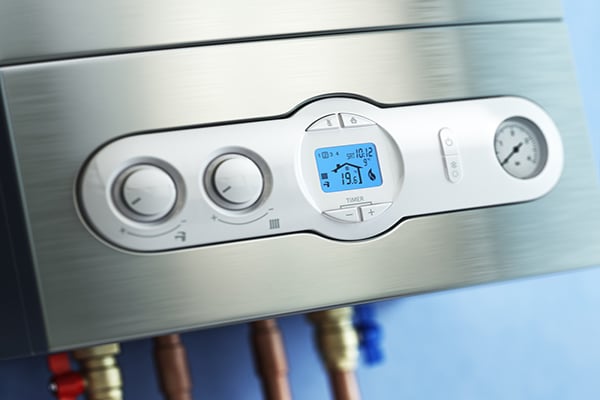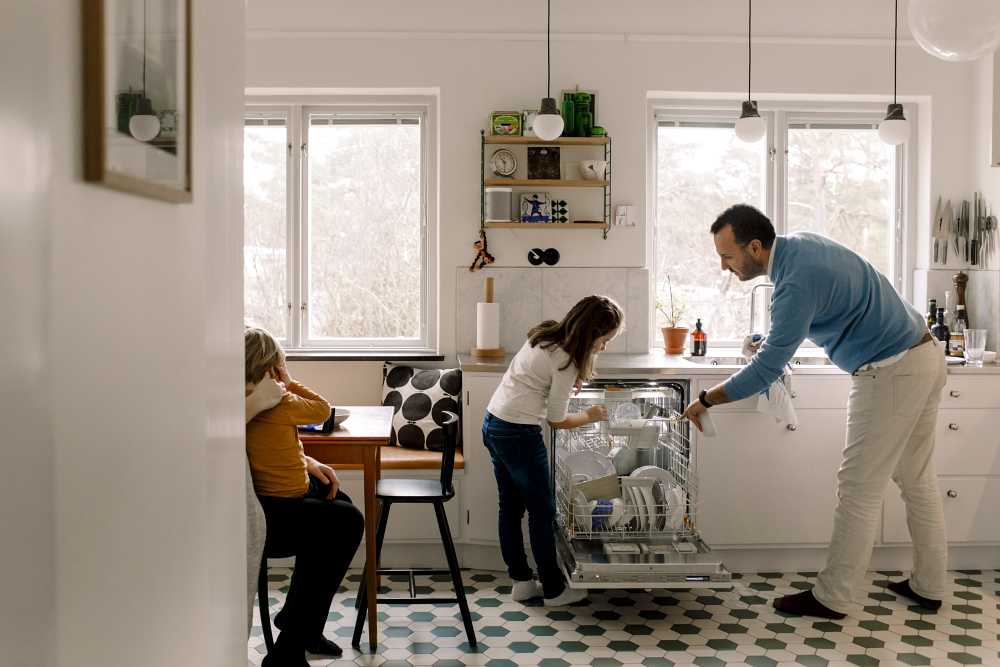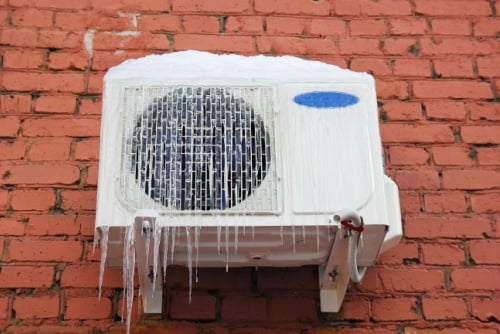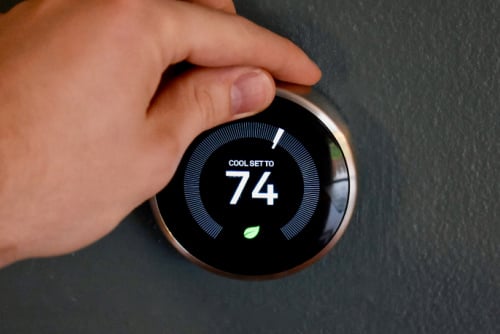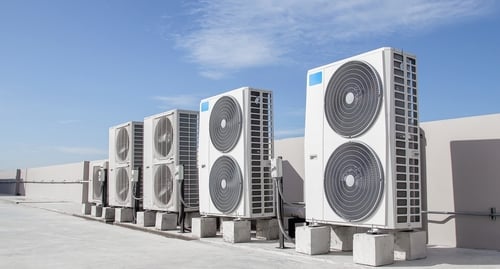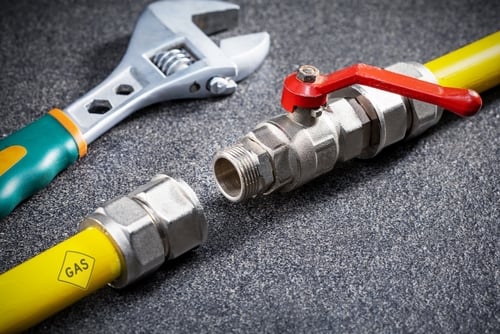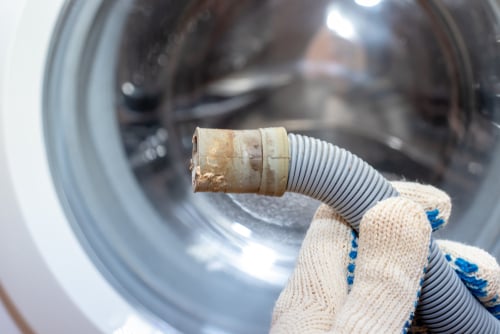Does your home currently have a heating system, or are you curious about installing one for your new house? Whatever your situation, you may have wondered about the differences between electric and gas heating systems. We’ve got you covered!
Here are some of the most frequently asked questions (and answers) about electric heaters and gas heaters for your home.
What is more commonly used in the United States, electric or gas heat?
According to the U.S. Energy Information Administration, about 47 percent of homes use gas heaters compared to 36 percent of homes that use electric heaters.
The remainder of homes either have no heat or use a variety of other sources, such as propane, fuel oil, and wood.
How does an electric heater work?
An electric house heater has wire coils that activate once your home’s thermostat sends a signal. These coils create heat through electricity, and a blower starts to draw in cool air from outside into the furnace.
The cool air is blown over the hot coils to heat up and is then blown out and distributed through your home’s ductwork.
Electric heating systems generally have small units; don’t require special venting, fuel pipes, or storage tanks; and are easy to maintain.
How does a gas heater work?
A gas heater works by burning natural gas or propane to generate heat.
Cold air from the home’s ductwork enters the heater and is warmed up by a heat exchanger. The hot air is blown throughout the home via the ducts, and the exhaust is blown out of the furnace through a vent to the outside of the home.
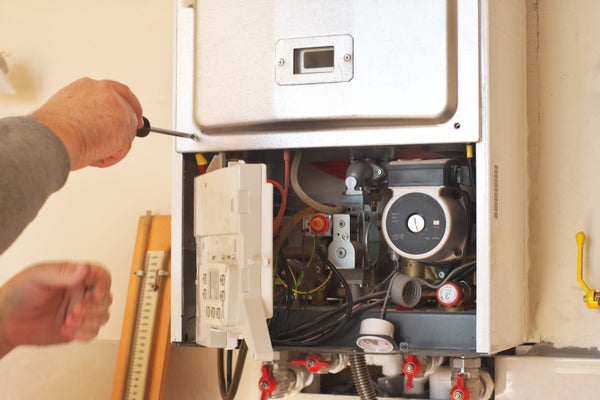
A natural gas heater for your home may cost more and require extra expenses for putting in gas lines if they don’t already exist. But gas heaters for your house offer the convenience and comfort of warming up rooms quickly, are less expensive to operate, and are great for areas that have harsh winters.
Is electric heating cheaper than gas?
Electric heat costs more to operate than a traditional gas furnace, so homeowners with electric heaters will likely have higher monthly utility bills.
However, some homeowners may not have access to natural gas fuel or gas lines, so gas may not be an option.
According to Fixr.com, prices for installing gas furnace equipment are usually higher than those for putting in a new electric home heating system, making the up-front cost more significant. While prices vary in different regions, the average gas heater cost for installation in a 2,000-square-foot home ranges from $4,500 to $6,000. For the same-sized home, electric furnaces can range from $2,000 to $4,000.
Whether you have electric or gas, home heating systems probably take up the lion’s share of your energy use and budget, typically comprising about 42 percent of a homeowner's utility bill.
How do I find energy-efficient heaters?
To find energy-efficient gas heaters for homes as well as electric house heaters, look for the ENERGY STAR certification. This certifies that the model meets energy-efficient requirements set by the U.S. Environmental Protection Agency.
What other home heating options are there?
In addition to gas and electric heaters for homes, like furnaces and boilers, options include solar heating, electric resistance heating, wood and pellet heating, steam and hot water radiators, radiant heating, and heat pumps.
There are also hybrid heating systems available, which offer the benefits of dual systems.
When should I consider upgrading to a new system?
The average heater life span for a well-maintained electric or gas heater is 15–25 years. However, it may be cost-effective to upgrade sooner to save on energy costs. Newer systems may be quieter and better for the environment.
Any home system will experience wear and tear, and your home heating system is no exception. Protect the key parts of your heating system (and your budget) with American Home Shield® home warranty coverage. Take a look at our affordable plans.
How much more efficient are new heating systems than older ones?
According to Energy.gov, older furnace and boiler systems are about 56 to 70 percent efficient, while modern conventional heating systems can reach efficiencies of 98.5 percent.
Upgrading to a newer, high-efficiency heating system can often cut fuel bills (and pollution) by half.
What things should I consider when putting in a new heating system?
The Department of Energy issues energy standards for residential gas, electric, and oil-fired furnaces. You’ll also want to consider choosing ENERGY STAR-certified equipment, which can help you save on energy costs.
In addition to energy standards and efficiency, you should ask yourself a few questions about your home heating needs and location. For example, what energy and heat source options are available locally? Is a natural gas heater even an option? What are the costs for natural gas and electricity in your part of the country? What are the local labor costs for replacing your HVAC? Do you have gas line availability? What are the winters like where you live? How willing are you and other members of your household to take steps to save energy during cooler months? If you choose a more expensive heating system option, how long will it take for the associated energy efficiencies to offset the initial costs?
If I don’t want to change or upgrade my heating system, is there anything else I can do to save on heating costs?
Whether you have a gas heater or an electric heater, make sure to maintain your heater properly. Have it serviced regularly, and change filters according to the manufacturer’s directions.
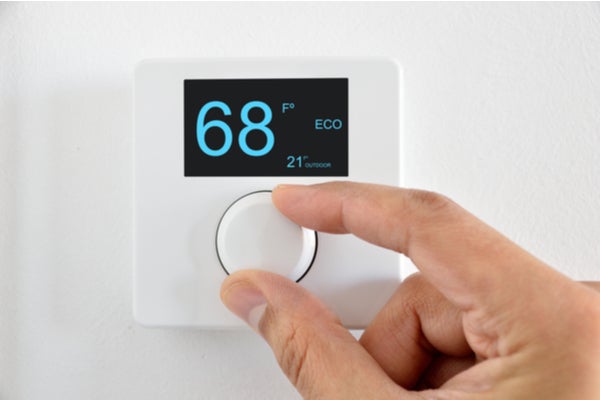
Here are some other tips from Energy.gov to help you save on energy use and costs:
- Install a programmable thermostat and set it to the lowest comfortable setting.
- Clean heating equipment regularly, and make sure equipment and registers aren’t blocked by furniture or other items.
- Don’t let kitchen and bath exhaust fans run for more than 20 minutes.
- During winter, keep draperies and shades on the south side of your dwelling open during daytime hours to let the sun provide some heat. Close draperies and shades at night to help eliminate drafts and chill from windows.
In addition to reducing your home’s heating energy use, consider taking a whole-house approach to offset gas heater or electric heater costs. This approach combines proper equipment maintenance, insulation, air sealing, and thermostat settings to help save on your energy bill and reduce your home’s impact on the environment.
After you’ve chosen the right gas or electric heater for your home, check out more heating-related topics, from troubleshooting your heater to learning more about patio heaters.
Was this article helpful?
